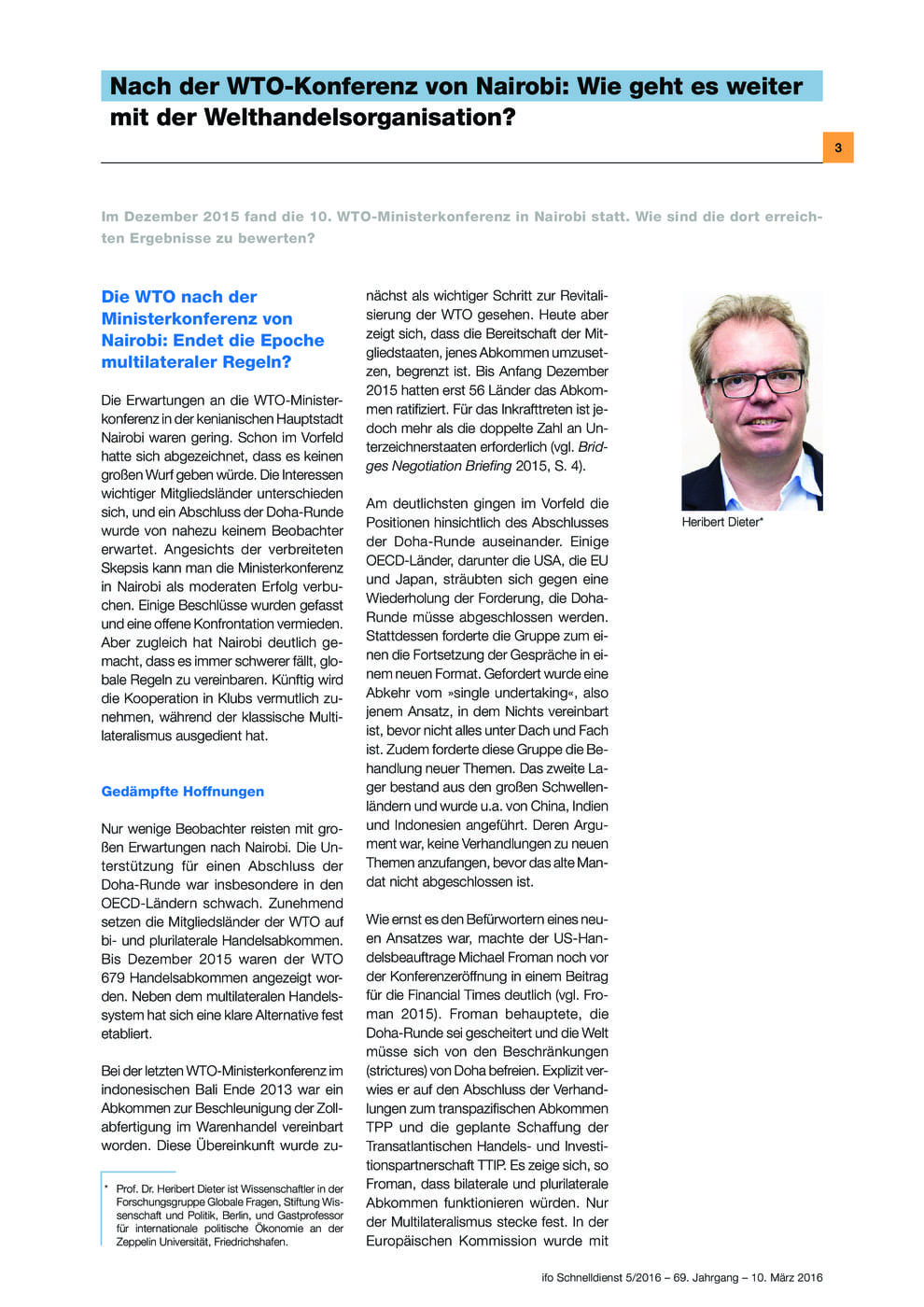After the WTO Conference in Nairobi: What is the Future of the World Trade Organisation?
ifo Institut, München, 2016
ifo Schnelldienst, 2016, 69, Nr. 05, 03-17

The 10th WTO Ministerial Conference took place in December 2015 in Nairobi. According to Heribert Dieter, Stiftung Wissenschaft und Politik, Berlin, the ministerial conference was a moderate success, since several resolutions were passed and a direct confrontation was avoided. However, it also emerged that it is becoming increasingly difficult to agree on global rules. For Rolf J. Langhammer, Institut für Weltwirtschaft, Kiel, the biggest challenge for the WTO lies in the bilateralisation of trade policy. For Marc Bungenberg, University of the Saarland, the results of both of the most recent WTO ministerial conferences – Bali und Nairobi – have been disappointing compared with the ambitious start of the Doha-WTO round of world trade law reforms. Andreas Freytag, University of Jena, and Catherine Grant Makokera see key successes for African WTO members. For the first time the WTO was in a position to agree to a broad range of obligations with regard to agricultural trade in Nairobi. Axel Berger and Clara Brandi, Deutsches Institut für Entwicklungspolitik, Bonn, also believe that agreements were reached at the conference in Nairobi, which show that the WTO can still act as a forum for multilateral negotiations. The agreement among WTO member states to end export subsidies, for example, marks the most important decision taken in the WTO’s 20-year history.